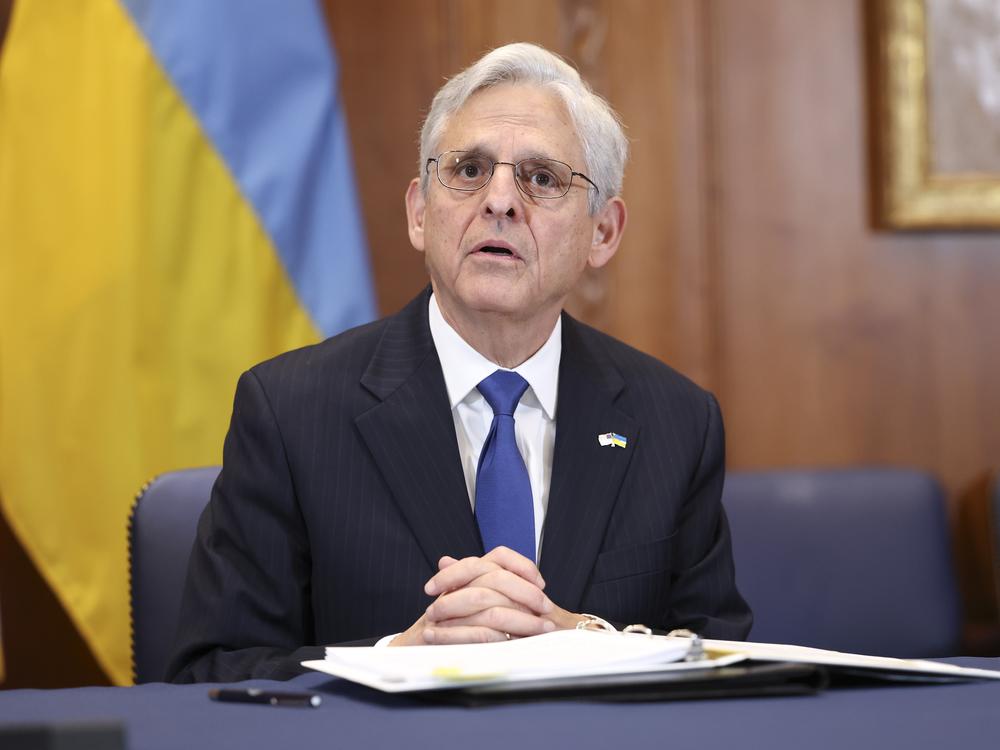Section Branding
Header Content
U.S. accuses Russia of sophisticated influence campaigns against U.S. voters
Primary Content
The U.S. Department of Justice on Wednesday said it disrupted Russian-directed foreign malign influence campaigns it referred to as “Doppelganger,” that sought to spread Russian government propaganda.
The effort was meant to reduce international support for Ukraine, bolster pro-Russian policies, and influence voters in the U.S. and elsewhere, the Justice Department said.
Separately, the DOJ accused two Russian employees of RT, the Russian state-owned media outlet, of a nearly $10 million scheme to create and distribute content to U.S. audiences while keeping the connection to Russia hidden.
RT worked with an online content creation company in Tennessee, which was directed to contract with U.S. social media influencers to distribute its content on social media platforms including, TikTok, X, Instagram and YouTube. Since November, the company posted more than 2,000 videos that received more than 16 million views on YouTube, according to the indictment.
The link to Russia was never disclosed, the DOJ said.
The two RT employees, Kostiantyn Kalashnikov, 31, and Elena Afanasyeva, 27, have been charged with conspiracy to commit money laundering and conspiracy to violate the Foreign Agents Registration Act.
"The American people are entitled to know when a foreign power is attempting to exploit our country's free exchange of ideas in order to send around its own propaganda," Attorney General Merrick Garland said Wednesday.
The two indictments come as the U.S. has been increasingly warning about Russia’s efforts to influence U.S. voters through a variety of efforts.
As part of the Doppelganger investigation, the DOJ said it seized 32 internet domains used in the effort, and named Russian companies Social Design Agency (SDA), Structura National Technology (Structura), and ANO Dialog as being involved in the effort.
The effort involved Russian President Vladimir Putin’s inner circle, including First Deputy Chief of Staff of the Presidential Executive Office Sergei Vladilenovich Kiriyenko, it said.
Garland announced the charges at a meeting of the DOJ's election threats task force, which was set up in 2021 to counter the growing number of threats nationwide against election officials and administrators. He said the investigation remains active.
The Treasury and State Departments have parallel actions on these matters, Garland said.
In a statement on its website ahead of the charges, RT dismissed the findings, joking that their responses included comments like “Ha!” and “2016 called and it wants its clichés back.”
Garland made clear to reporters that he was not amused.
"I'm sure that was much funnier in the original Russian, but for us, it's not funny," Garland said. "This is deadly serious and we are going to treat it accordingly."
FBI Director Chris Wray said Russia has a long history of meddling in American society, though now there are increasingly sophisticated tools like artificial intelligence to amplify the efforts.
“Whether it's shell companies, fake personas, secret distribution networks, the point is not the message itself," Wray said. "The point is the hidden hand of the Russian government, which deceives Americans into thinking that they're getting information from American sources when in fact it's coming from the Russian government."
Warnings for months
United States intelligence and security officials have been warning for months about Russia’s efforts to interfere in the 2024 election, specifically to undermine the Democratic presidential nominee, exploit social divisions, sow distrust in democratic institutions and to erode support for Ukraine.
The U.S. has provided arms to Ukraine to support its war following Russia's invasion in 2022.
“Russia remains the most active foreign threat to our elections,” Director of National Intelligence Avril Haines told senators in May at a briefing about election risks.
This is not the first time the U.S. has taken action against those behind the Doppelganger influence campaign.
In March, the U.S. Treasury sanctioned Social Design Agency and Structura, as well as their founders, for a network of fake accounts and phony news websites, saying they carried out the campaign "at the direction of the Russian Presidential Administration."
The Doppelganger campaign, which was first identified by researchers at EU DisinfoLab in 2022, has impersonated news outlets including The Washington Post and Fox News, and it has posed as NATO, the Polish and Ukrainian governments, the German police and the French Foreign Ministry.
The campaign recently used fake French-language news sites to push claims of corruption at the recent Paris Olympics and to warn of potential violence, according to a Microsoft report.
Prior propaganda campaigns
The Kremlin has long relied on fake social media accounts to sow discord and advance its own interests.
In July, the Justice Department said it disrupted a Russian propaganda campaign that used artificial intelligence tools and relied on fake social media accounts impersonating Americans to spread disinformation in the U.S. and other countries. It said the effort involved an editor at RT.
The Justice Department required RT’s U.S. arm to register as a foreign agent in 2017, after US intelligence officials said it was involved in Russian attempts to interfere in the 2016 election.
The bot farm used AI to create the fake profiles on X, formerly known as Twitter. The accounts posted support for Russia's war in Ukraine and other pro-Kremlin narratives. The effort and the AI software behind it were organized by an editor at RT, the Russian state-owned media outlet, the Justice Department alleged. The project was funded by the Kremlin and run by a Russian intelligence officer.
At the time, when asked for comment on the allegations, RT's press office replied: "Farming is a beloved pastime for millions of Russians."

